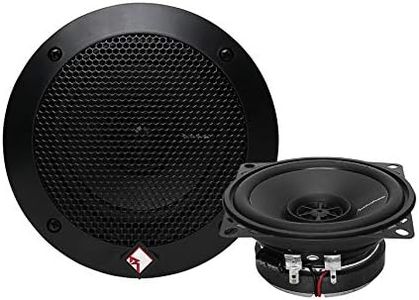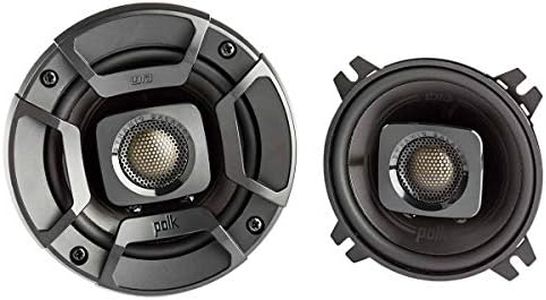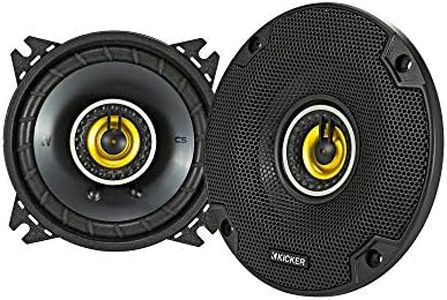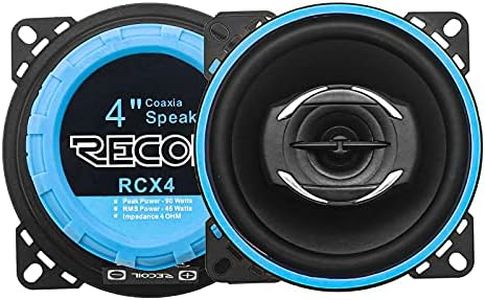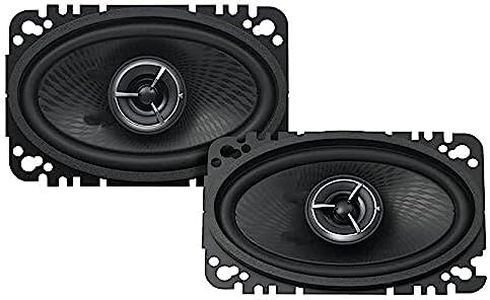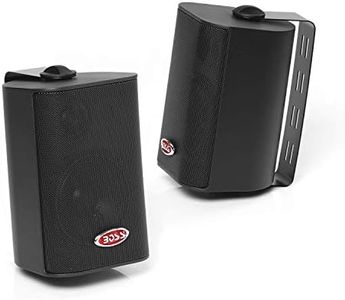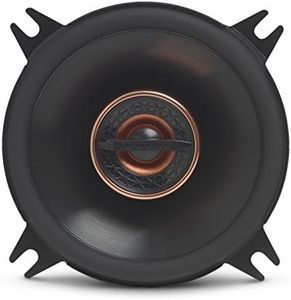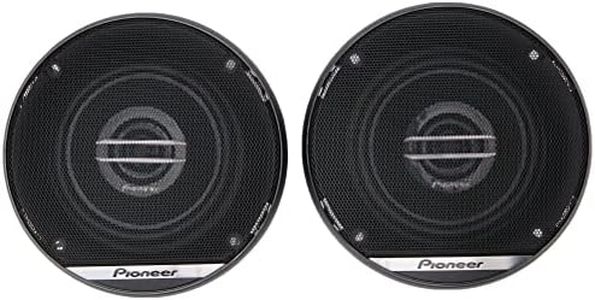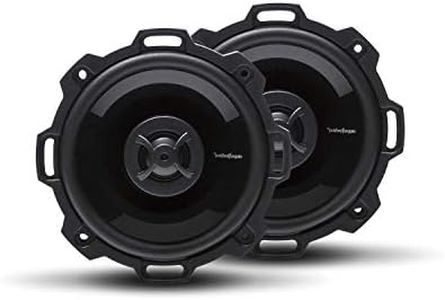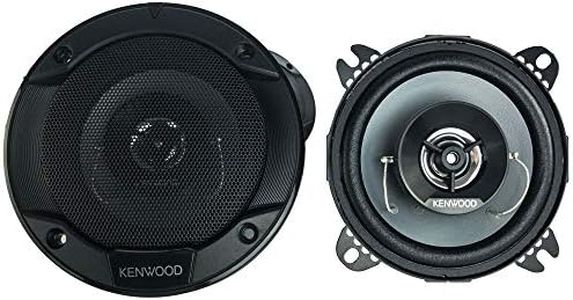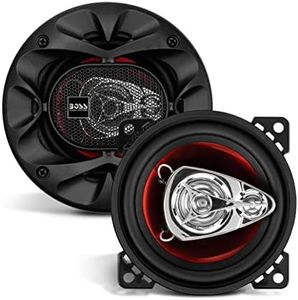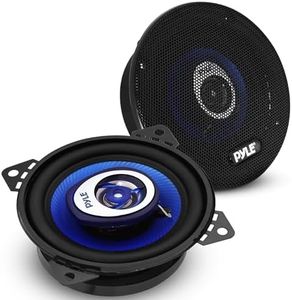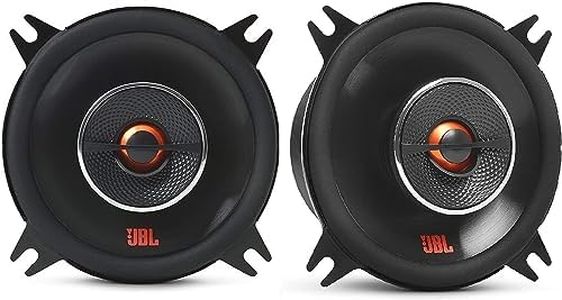We Use CookiesWe use cookies to enhance the security, performance,
functionality and for analytical and promotional activities. By continuing to browse this site you
are agreeing to our privacy policy
10 Best 4 Inch Car Speakers
From leading brands and best sellers available on the web.Buying Guide for the Best 4 Inch Car Speakers
Choosing the right 4-inch car speakers can make a big difference in your driving experience, as they are responsible for delivering clear and enjoyable sound while you’re on the road. When shopping for these speakers, it’s important to understand the key features that affect sound quality, compatibility, and durability. By focusing on the main specifications, you can find a set of speakers that matches your listening preferences and fits well in your vehicle.Power Handling (Wattage)Power handling refers to how much power (measured in watts) a speaker can handle from your car’s audio system without being damaged. This is important because matching the speaker’s power handling to your car stereo or amplifier ensures you get clear sound without distortion or risk of blowing the speakers. Power handling is usually given as RMS (continuous power) and peak (maximum short burst). Lower wattage speakers (10-30W RMS) are suitable for basic factory stereos, while higher wattage (30-60W RMS or more) is better if you have a more powerful aftermarket system. Choose speakers with power handling that matches or slightly exceeds your audio system’s output for the best results.
SensitivitySensitivity measures how efficiently a speaker converts power into sound, usually given in decibels (dB). Higher sensitivity means the speaker can produce more volume with less power, which is important if you’re using a factory stereo with limited output. Sensitivity ratings typically range from about 85dB to 92dB. If your car stereo isn’t very powerful, look for speakers with higher sensitivity (88dB or above). If you have a strong amplifier, you can consider speakers with lower sensitivity, as you have enough power to drive them.
Frequency ResponseFrequency response tells you the range of sounds a speaker can reproduce, from low bass to high treble, and is measured in Hertz (Hz). A wider frequency range means the speaker can play both deeper bass and higher treble notes. For 4-inch speakers, you’ll often see ranges like 60Hz-20kHz. If you want more bass, look for speakers with a lower starting frequency, but remember that small speakers have natural limits in bass output. If you care more about clear vocals and crisp highs, focus on the upper end of the range.
Speaker Type (Coaxial vs. Component)4-inch car speakers come mainly in two types: coaxial (full-range) and component. Coaxial speakers combine the woofer and tweeter in one unit, making them easy to install and suitable for most users who want a simple upgrade. Component speakers separate the woofer and tweeter for better sound quality and customization, but they require more complex installation. If you want straightforward installation and decent sound, go with coaxial. If you’re an audio enthusiast looking for the best sound and are comfortable with more involved installation, consider component speakers.
Build MaterialsThe materials used in the speaker’s woofer, tweeter, and surround affect both sound quality and durability. Woofers made from polypropylene or other stiff, lightweight materials offer good bass and last longer. Tweeters made from silk or textile produce smoother highs, while metal tweeters give brighter, sharper sound. Surrounds made from rubber are more durable than foam. If you want long-lasting speakers that sound good in all conditions, look for quality materials in all parts of the speaker.
Mounting Depth and SizeMounting depth is how much space the speaker needs behind the mounting surface, and overall size ensures the speaker fits in your car’s existing slots. This is crucial because not all 4-inch speakers have the same depth or shape. Before buying, check your car’s speaker openings and compare them to the speaker’s dimensions. If you have limited space, choose a speaker with a shallow mounting depth. Always make sure the speaker will fit your car to avoid installation headaches.
